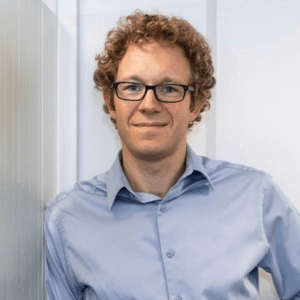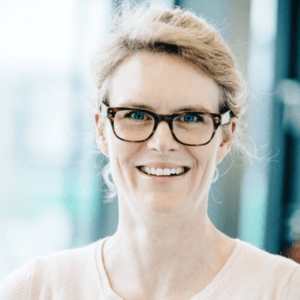The climate emergency is one of the biggest challenges facing businesses—and the world—today, forcing business leaders to act now to reduce their company’s negative impact.
However, adopting a sustainability strategy is no easy feat. It means shifting the status quo of your business in a variety of ways, from implementing new practices to reporting on sustainability KPIs alongside financials.
So, where should business leaders start? We spoke to experts in sustainable business strategy to find out key sustainability strategies to help future-proof your business.
Motivating teams is key to implementing a new business strategy
A business won’t become sustainable overnight; it takes dedication and collaboration.
For business leaders, that means ensuring all departments in a company are aligned and working towards clearly defined sustainability targets.
Marc Bosmans is the sustainability director at Knauf Installation—a multinational company specializing in installation products where he focuses on driving sustainable direction and reporting on all sustainable initiatives. He also teaches a case study on the European Executive MBA (EEMBA) program at Vlerick Business School to share his expertise with other business leaders.
Alongside core MBA topics, the EEMBA program helps business leaders and executives learn the knowledge and skills to build and implement a successful sustainable business strategy. 
In immersive modules studied across European cities—in Paris, Madrid, Copenhagen, Dublin, and Brussels—students deep-dive into courses such as Sustainable Finance, Sustainable Supply Chains, and Purposeful and Resilient Organizations. During these trips, students meet with companies to see first-hand how they are navigating this shift.
In his class on sustainable strategy, Marc teaches students how to think about business through a sustainable lens and reveals the questions they should ask when setting new environmental, social, and governance (ESG) targets.
But the crucial first step, he says, is ensuring that managers and employees in all departments are motivated towards the same goals.
“I strongly believe that sustainability values need to come from within a company to enact change. It may be slower to do than hiring an army of consultants or pushing down from the top, but in the long run it’s more effective,” says Marc.
To encourage motivation, Marc is working with senior leadership teams across Knauf Installation to roll out training programs and workshops on climate change for all employees.
“We want to bring people slightly out of their comfort zone so they understand the urgency of combating climate change, learn to talk about the issues, and become the driver themselves,” he says.
Business leaders need to be willing to adapt
As the climate crisis progresses, business leaders are constantly faced with new challenges. For example, the European Union (EU) is advancing its sustainability agenda by introducing new regulations calling companies to report on their environmental impact and reduce carbon emissions.
Businesses that are ahead of the curve in adopting sustainable practices can gain a competitive advantage and mitigate risks such as resource scarcity. But first, leaders must be willing to adapt their business models.
“I teach professionals on the Vlerick EEMBA program how to integrate sustainability into business processes and into purpose,” says Marc.
Each industry and company must adapt in different ways and constantly update their sustainability tactics in line with the changing climate and regulation.
“The only thing I am sure of is that the roadmap we have in front of us [at Knauf Installation], is not the roadmap we will implement. Every year we need to review it because regulations are coming in and priorities could be set differently,” says Marc.
During the Knowledge-In-Action project on the EEMBA program, business leaders can look at their own company’s business model and targets and apply their learnings to strategize real-life sustainable solutions.
By learning to look at business through the lens of sustainability, this teaches leaders that they can have an even wider impact. 
Kerstin Fehre, professor of strategy on the Vlerick European Executive MBA program, researches how companies with alternate perspectives react differently to climate change.
“Some companies build barriers against the threat of the climate crisis whereas others turn it into an opportunity,” she says.
Kerstin aims to show business leaders on the EEMBA how they can tap into opportunities to make a positive impact. In one project, for example, the class were asked what their company could do to overcome the issue of water scarcity.
“Those students who worked for a software company or accounting firm did not initially believe they could make a difference but by the end of the class, we were all blown away by the solutions we had come up with,” she says.
A sustainable business strategy includes short and long-term goals
As climate change worsens, the speed of company transition is becoming increasingly urgent.
“The regulations and business environment that is happening in 2023 was almost unimaginable two years ago. This necessitates having a firm direction and roadmap,” says Marc.
While companies may have an long-term goal in mind—such as the EU’s goal to be carbon neutral by 2050—they will also need to set short-term goals.
“Everything starts with having a strategy based on very long-term goals, which are then translated into smaller ambitions. Short-term goals can be as simple as creating momentum and kickstarting the strategy,” says Marc.
Setting realistic goals requires business leaders to have a holistic view of how their company is impacted by environmental issues and how it can create an impact.
“Sustainability strategy tackles all three aspects of ESG. It’s not just about abiding by necessary sustainable actions such as reporting, but creating a competitive advantage for the long-term,” says Kerstin.
That’s why professionals on the EEMBA are encouraged to bring their real-world examples into the classroom to share perspectives and learn from one another.
“We really bring people together from various backgrounds to get challenged on their predefined views,” says Kerstin.
Implementing a sustainable business strategy is becoming increasingly crucial for business success. Beyond what legislation necessitates, business leaders should be looking to invest both in becoming a sustainable leader themselves and in future-proofing their companies against unprecedented change.




